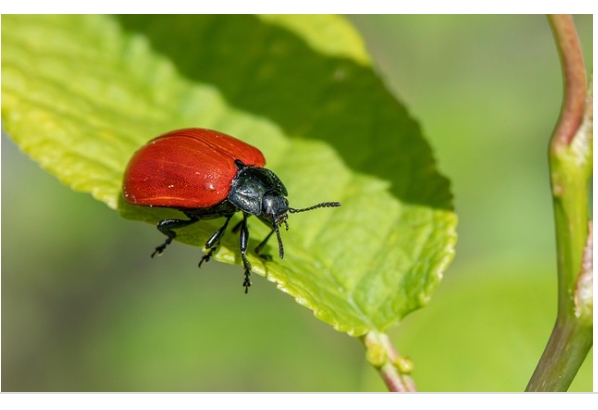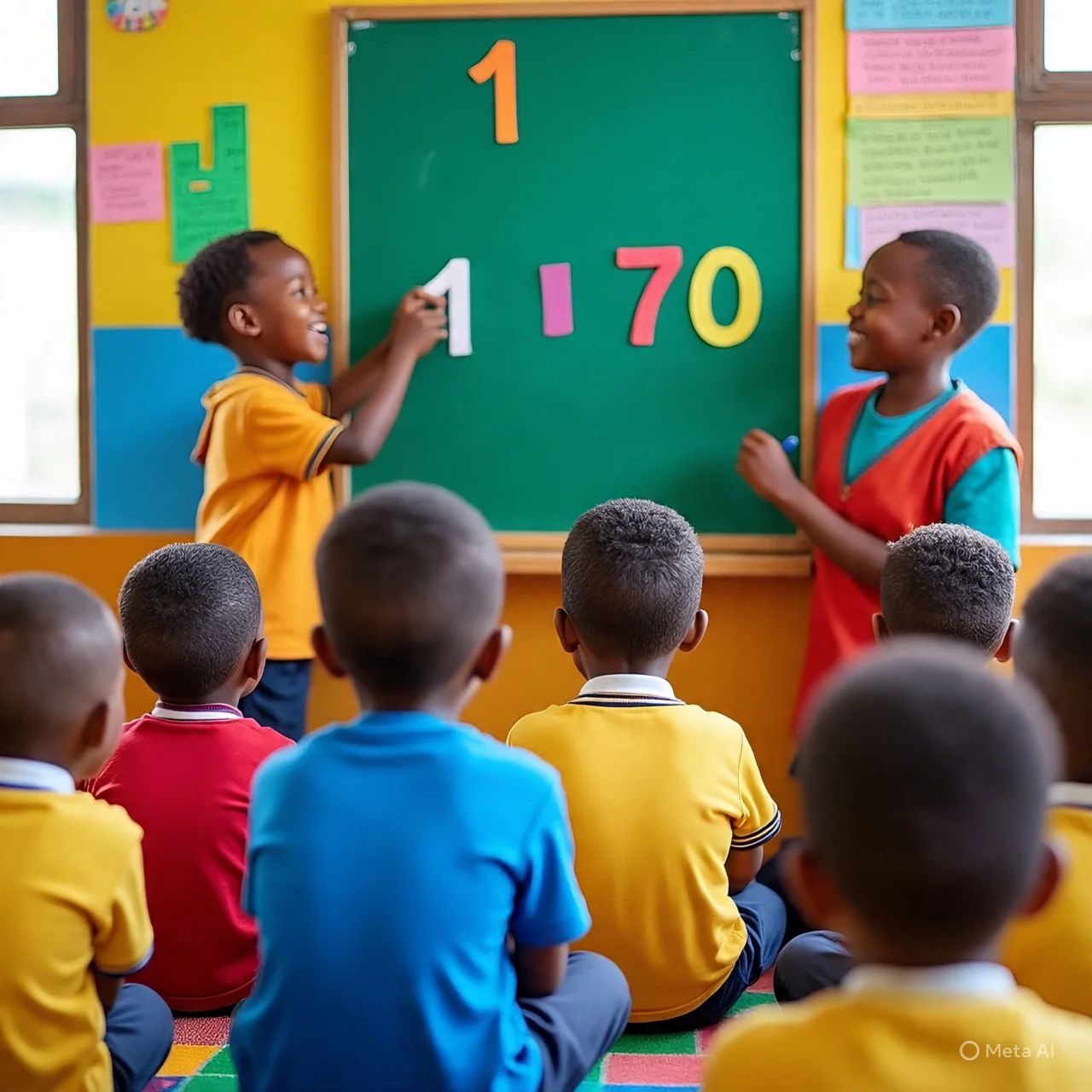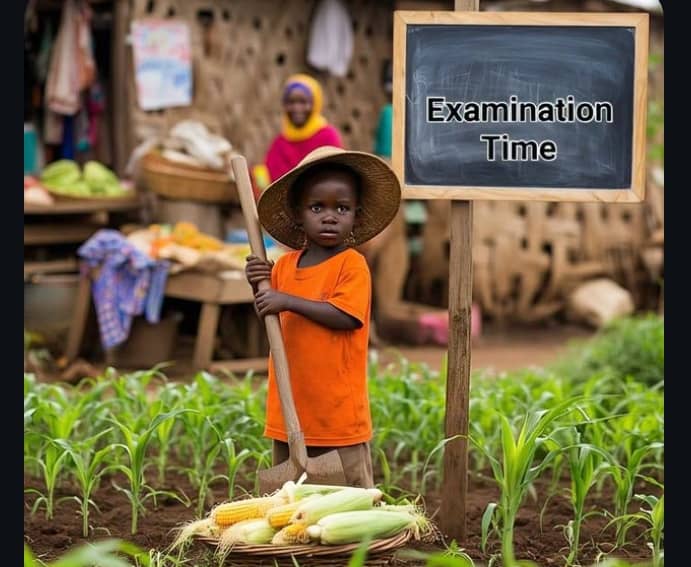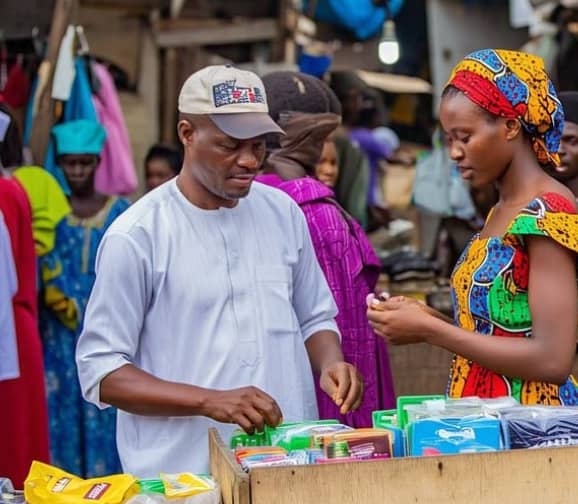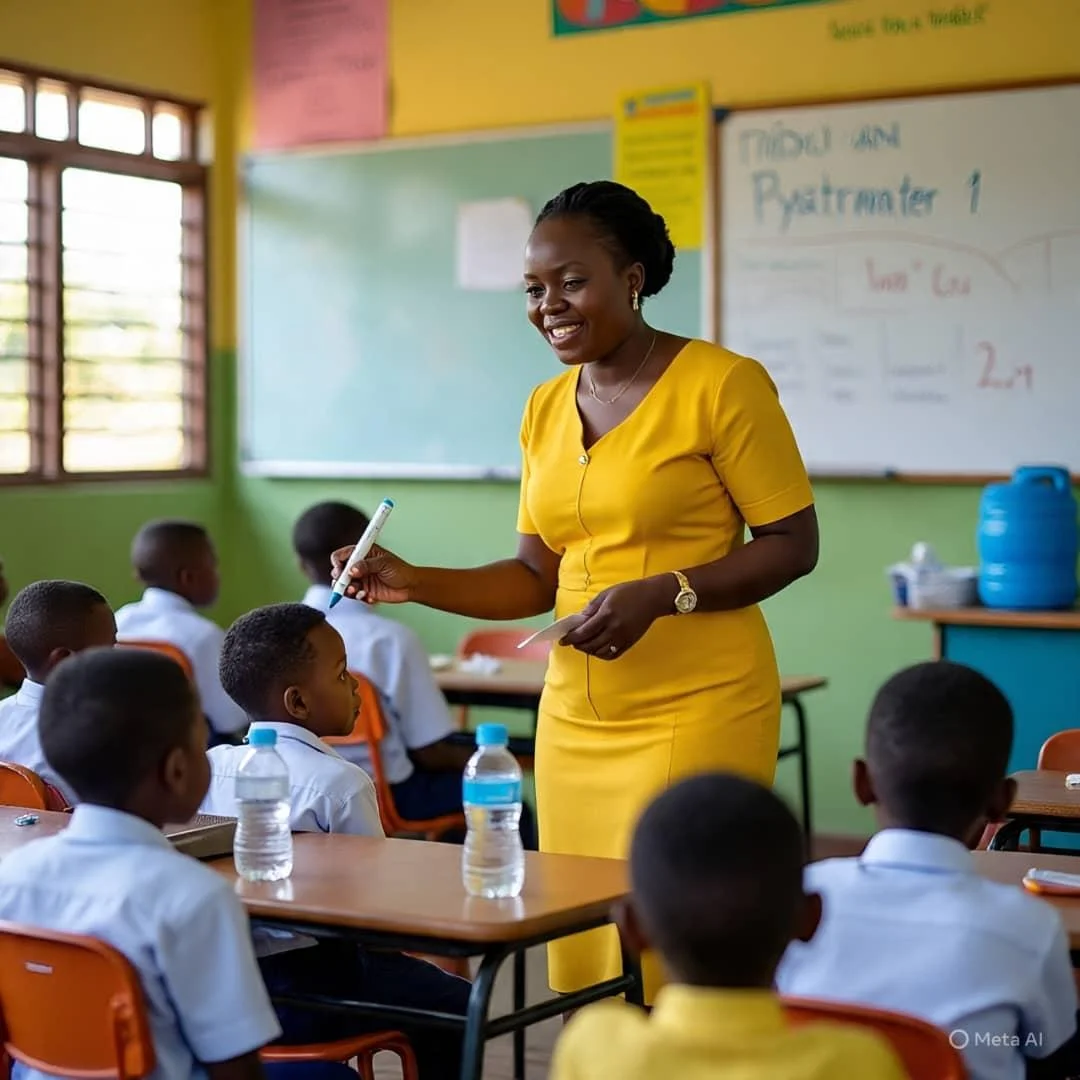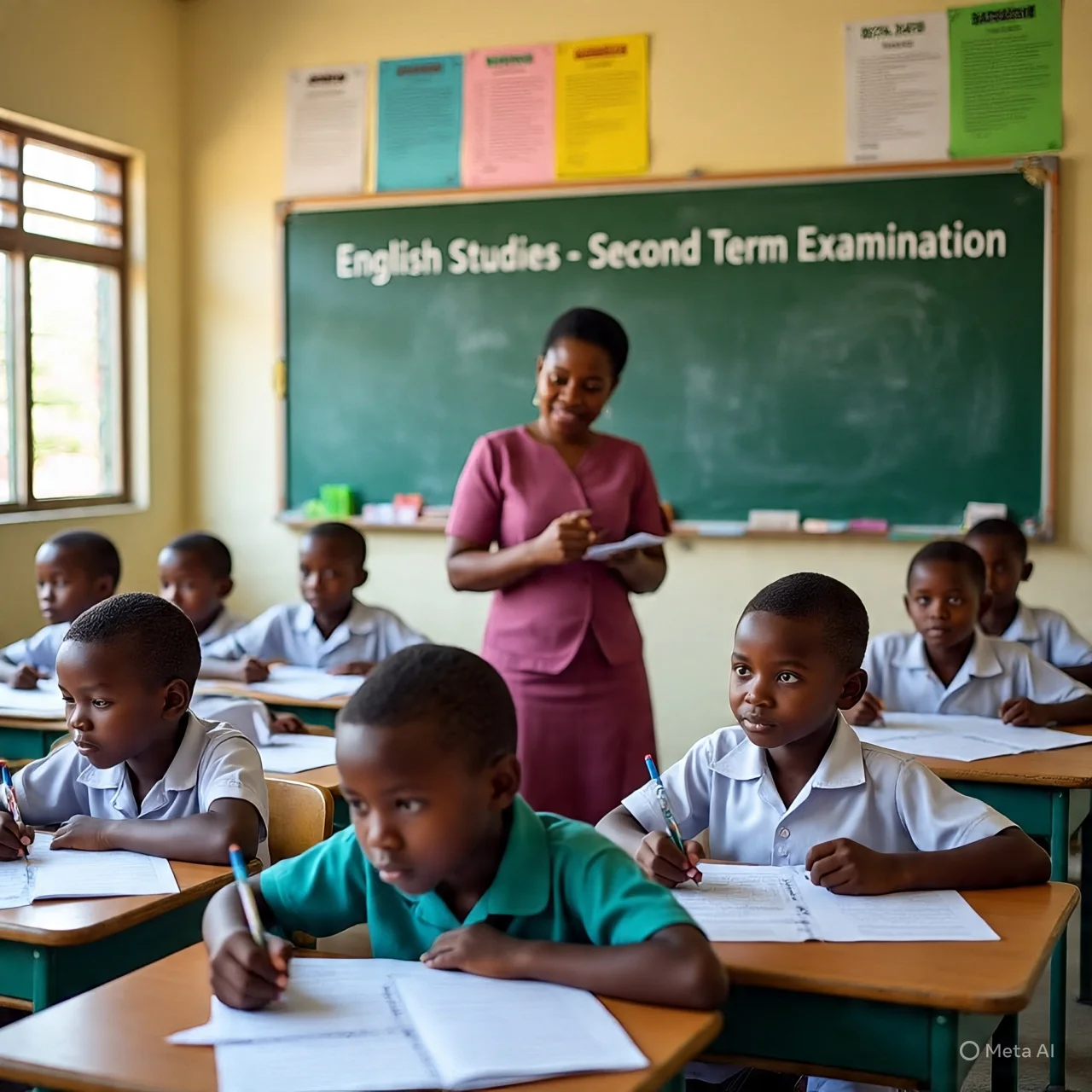
SOCIAL STUDIES LESSON PLAN
Subject: Social Studies
Class: Primary 1
Term: Second Term
Week: 1
Age: 5–6 years
Topic: Revision – Food
Sub-topic: Meaning and Examples of Food
Duration: 40 minutes
Behavioural Objectives
At the end of the lesson, pupils should be able to:
- Explain the meaning of food in simple words.
- Mention at least five examples of common foods.
- Identify foods that give energy.
- Name foods that help the body grow.
- Tell the difference between food and non-food items.
Keywords (with meanings)
- Food – What we eat to grow and stay healthy.
- Energy – Power the body uses to work and play.
- Nutrients – Good substances in food.
- Protein – Food that helps the body grow.
- Carbohydrate – Food that gives energy.
- Fat – Food that gives warmth and energy.
- Fruit – Sweet natural food from trees and plants.
- Vegetables – Healthy plants we eat.
- Balanced diet – Eating different kinds of food.
- Spoilt food – Food that is bad and unsafe to eat.
Set Induction (Attention-Grabbing Story)
The teacher tells a short, warm story:
“Children, yesterday morning as I was coming to school, I saw little Tunde crying beside his mum’s shop. I went closer and asked him what happened. He said he could not run and play with his friends because he had not eaten breakfast. His mummy quickly brought out a small plate of rice and egg for him. Guess what? After eating, Tunde jumped up and started running again! Why do you think he became strong immediately? Yes! Because food gives us energy. Today, we will talk about food.”
Entry Behaviour
Based on your persona:
The teacher gently asks:
“Who ate something this morning before coming to school? What did you eat?”
Pupils respond with real-life examples (bread, tea, rice, yam, beans).
Teacher affirms answers to set a warm, psychological connection.
Learning Resources and Materials
- Real food items or pictures (bread, apple, beans, fish).
- Chart showing food groups.
- Drawing book and crayons.
Building Background / Connection to Prior Knowledge
The teacher reminds pupils that last term they learned about different things we use every day. Today they will revise what food is and why we eat.
Embedded Core Skills
- Communication skills
- Critical thinking
- Observation
- Listening skills
- Personal safety and hygiene awareness
Reference Books
- Lagos State Unified Scheme of Work
- Basic Education Curriculum (BEC)
- Social Studies for Primary Schools (UPL)
Instructional Materials
- Flashcards
- Food posters
- Chalkboard/marker
CONTENT
1. Meaning of Food
Food is what we eat to grow, gain energy, and stay healthy.
Simple List Explanation:
- Food helps the body grow.
- Food gives us energy.
- Food keeps us strong.
- Food protects the body from sickness.
- Food helps us play and think well.
2. Examples of Food (at least 10)
- Rice
- Beans
- Yam
- Bread
- Egg
- Fish
- Meat
- Orange
- Banana
- Milk
In-depth Explanation With Examples
A. Food Gives Energy
Energy foods help us walk, run, jump, and play.
Examples:
- Rice
- Yam
- Garri
- Bread
- Potatoes
B. Food Helps Us Grow (Body-building foods)
These foods make our bones and muscles strong.
Examples:
- Fish
- Beans
- Egg
- Beef
- Chicken
C. Food Protects the Body (Protective foods)
These help us fight sickness.
Examples:
- Orange
- Apple
- Banana
- Carrot
- Cucumber
D. Foods We Should Not Eat (Unsafe foods)
Examples:
- Spoilt food
- Rotten fruit
- Expired milk
- Dirty food
- Overcooked burnt food

PRESENTATION
Step 1: Revision
Teacher reviews last term’s work on basic needs.
Step 2: Introduction of New Topic
Teacher says: “Today we will revise FOOD. Food is what helps us live and grow.”
Step 3: Teacher Encourages Participation
Pupils mention foods they know.
Teacher corrects gently and explains.
Teacher’s Activities
- Tells the introductory story.
- Shows pictures of food.
- Writes the meaning of food on the board.
- Groups foods into energy, body-building, and protective foods.
- Guides pupils to mention more examples.
- Leads class discussion.
- Gives evaluation questions.
Learners’ Activities
- Listen to the story.
- Mention foods they have eaten before.
- Identify food pictures.
- Write examples of food.
- Answer questions.
Evaluation Questions (Fill in the Blanks with Options)
- Food gives us ________.
a. energy b. money c. toys d. cloth - We eat food to ________.
a. grow b. cry c. sleep d. fight - ________ is not food.
a. stone b. rice c. fish d. orange - Beans is a ________ food.
a. body-building b. toy c. stone d. fruit - Orange is a ________ food.
a. protective b. stone c. plastic d. rope - Bread gives ________.
a. energy b. tears c. water d. toys - Food helps us to stay ________.
a. healthy b. dirty c. sad d. weak - Meat helps the body ________.
a. grow b. fall c. break d. slow - Banana is a ________.
a. fruit b. shoe c. cloth d. bucket - Rotten food is ________ to eat.
a. unsafe b. sweet c. good d. nice
Evaluation Questions – Short Answer
- What is food?
- Give one reason why we eat food.
- Name two foods you like.
- Mention one energy food.
- Mention one body-building food.
- Mention one protective food.
- What food gives us strength?
- What food helps us grow?
- Which food protects us from sickness?
- Name one unsafe food.
CLASS ACTIVITY DISCUSSION (FAQs With Answers)
- Why do we eat food?
To grow and get energy. - Can we play without food?
No, we need energy from food. - Is stone food?
No. - Is rice food?
Yes. - Which food helps us grow?
Beans, fish, egg. - Which food protects us?
Fruits and vegetables. - Can we eat spoilt food?
No, it is unsafe. - Who needs food?
Everyone. - What gives energy?
Rice, bread, yam. - Which food is sweet and healthy?
Fruits like banana and orange.
Conclusion
Teacher goes around, checks pupils’ work, corrects errors gently, and gives praise for effort.
SOCIAL STUDIES REVISION – FOOD (Primary 1, Second Term, Week 1)
A. Choose the correct answer
- ________ is a substance consisting of protein, carbohydrate, fat and other nutrients used in the body.
(a) Food
(b) Energy
(c) Fat
Answer: Food - ________ helps in body development.
(a) Food
(b) Energy
(c) Power
Answer: Food - Food gives ________.
(a) Energy
(b) Money
(c) Water
Answer: Energy - Which of these is NOT food?
(a) Rice
(b) Beans
(c) Stone
Answer: Stone
B. List 5 different types of food you know
(Examples: rice, beans, yam, bread, egg, fish, milk, fruits, vegetables)

